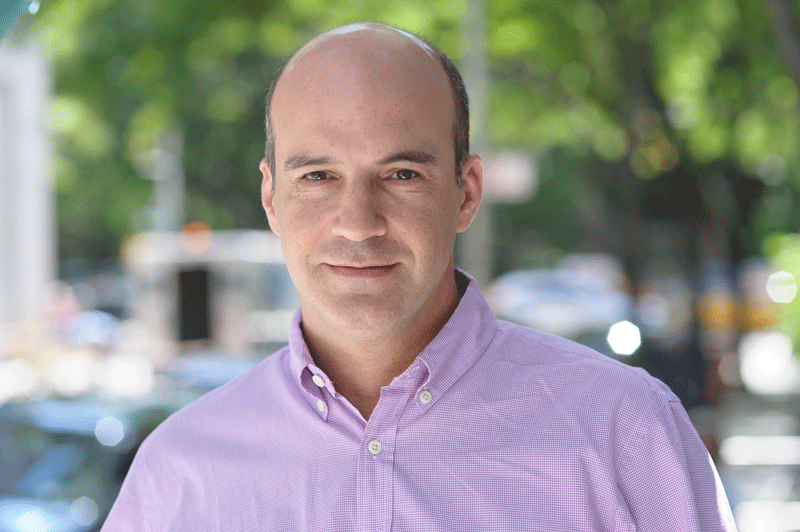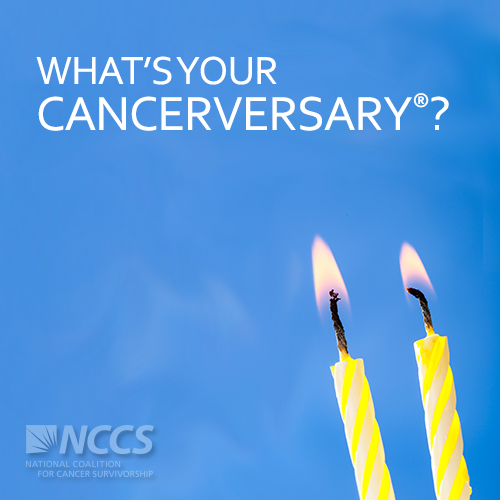
NCCS Responds to Two Recent Articles Covering the Complexities of Transparency and Shared Decision-Making Issues
Two stories in last week’s New York Times illustrate the complexities of the changing healthcare marketplace. They both describe discrete issues that beleaguer and hinder the transparency and shared decision-making that we at the National Coalition for Cancer Survivorship (NCCS) call for when patients need to make an informed decision ...

Guest Post by Peter Bach: Lung Cancer Awareness Month Brings a Long-Awaited Nod to Lung Cancer Screening
Guest post by Peter Bach, MD, MAPP, Director of Memorial Sloan Kettering’s Center for Health Policy and Outcomes. Every November is lung cancer awareness month, but this November is on track to being a pretty special one. Lung cancer physicians and public health professionals breathed a collective sigh of relief ...

Speaking to the Needs of Patients Living with Advanced Cancers and Honoring Cancer Stories with Cancerversary
Recently, NCCS had the honor of celebrating the work and advocacy of two amazing individuals. Susan Gubar, the author of The New York Times blog “Living with Cancer,” received the Natalie Davis Spingarn Writer’s Award, and Lillie Shockney was awarded the Catherine Logan Award for Service to Survivorship. We encourage ...

WCOE: The Burden of Caregiving, Financial Incentives, Unnecessary Services for Medicare Beneficiaries, and Medicaid Reform
What Caught Our Eye (WCOE) Each week, we take a closer look at the cancer policy articles, studies, and stories that caught our attention. In “Seeing the ‘Invisible Patient,’”Jane Gross addresses the burden of caregiving and how often caregivers’ health, both physical and mental, is overlooked. Ms. Gross refers to an ...

Guest Post: Forgotten Survivors—Supporting the Needs of Patients with Advanced Cancers
Guest post by Lillie D. Shockney, RN, BS, MAS, Director of Johns Hopkins Breast Center and Cancer Survivorship Programs. On November 19, 2014, NCCS will present the Catherine Logan Award for Service to Survivorship to Lillie at the Focus on the Care evening reception in Washington, DC. Though more and more ...

WCOE: Medicare’s Draft Decision for Lung Cancer Screenings, Immunotherapy, Breast Cancer Screening
What Caught Our Eye (WCOE) Each week, we take a closer look at the cancer policy articles, studies, and stories that caught our attention. Medicare’s draft decision to pay for lung cancer screenings for older, long-time smokers up to age 74 is likely to continue to spark some controversy. Several items ...

WCOE: Brittany Maynard’s Death with Dignity, Election Results and the ACA, and Susan Gubar’s “Not Talking About Medical Mistakes”
What Caught Our Eye (WCOE) Each week, we take a closer look at the cancer policy articles, studies, and stories that caught our attention. "Why is it so difficult for patients and doctors to discuss surgical accidents and complications without violating professional codes of conduct and arousing fears of legal liability?" ...

An Updated Survivorship Care Planning Template and Identifying Barriers to Implementation
Recently, the American Society of Clinical Oncology (ASCO) released an updated cancer survivorship care planning (SCP) template—news that was captured by several medical online news outlets including Healio, Medscape, and Cancer.net. Survivorship care planning is a process of cancer care delivery that NCCS has advocated for over the last 20 ...

WCOE: ACA Open Enrollment, Drug Prices and Innovation, Breast Cancer Awareness and More
What Caught Our Eye (WCOE) Each week, we take a closer look at the cancer policy articles, studies, and stories that caught our attention. This week, several articles caught our eye: Amy Berman shared her own experience “Choosing Wisely” when she opted for a single dose of radiation therapy to alleviate ...

Guest Post: Timing, Tools, Evaluation, and Documentation: Implementing Screening Programs for Psychosocial Distress
Guest Blog by Carole McCue, RN, MS, CNE According to a recent study, 75 percent of cancer patients with depression are not treated. The integration of psychosocial care into the routine care of all patients with cancer is now being recognized as a new standard of care and the National ...

